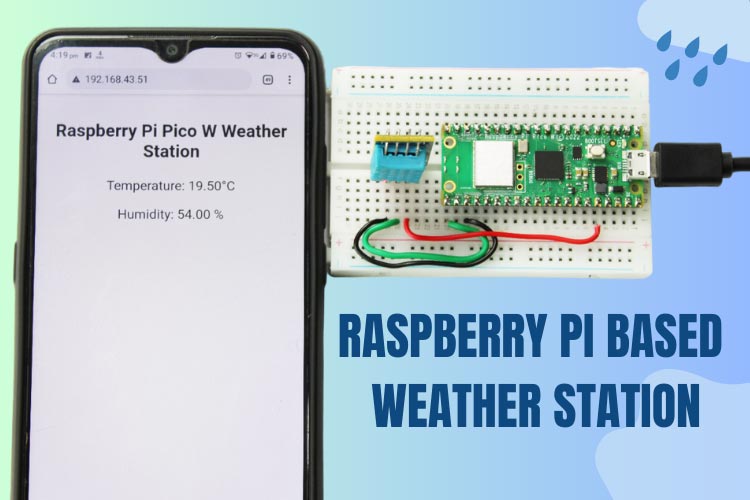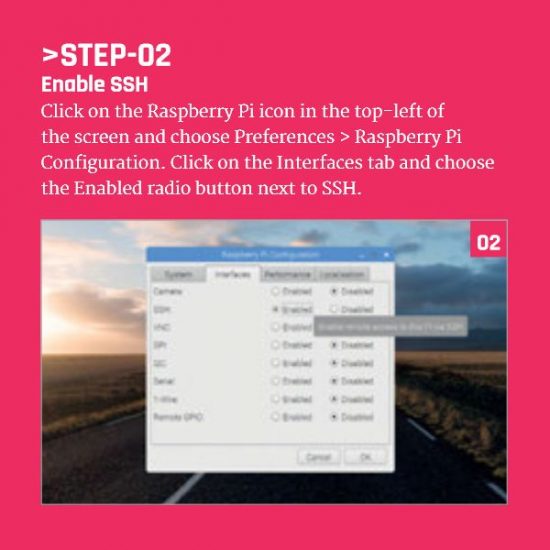Best SSH IoT Platform For Raspberry Pi Free: Unlock The Power Of Secure Remote Access
Mar 23 2025
Connecting devices securely in the Internet of Things (IoT) era has become crucial for both hobbyists and professionals. The Raspberry Pi, as one of the most popular single-board computers, plays a pivotal role in enabling remote device management. However, selecting the best SSH IoT platform for Raspberry Pi free can be overwhelming due to the wide range of options available.
Whether you're a beginner exploring IoT projects or a seasoned developer looking for cost-effective solutions, understanding the right SSH platform is essential. Secure Shell (SSH) acts as a gateway to remotely access and manage your Raspberry Pi, ensuring data security and seamless operations. This article will guide you through the top SSH IoT platforms compatible with Raspberry Pi that are available for free, helping you make an informed decision.
As IoT continues to grow, ensuring secure connections remains a priority. This guide delves into the best SSH IoT platforms, their features, benefits, and how they enhance the functionality of Raspberry Pi. Let's explore the best options available today.
Table of Contents
- Introduction to SSH IoT Platforms
- Raspberry Pi and Its Role in IoT
- Benefits of Using SSH for IoT
- Top SSH IoT Platforms for Raspberry Pi Free
- Comparison of SSH IoT Platforms
- How to Set Up SSH on Raspberry Pi
- Security Best Practices for SSH IoT
- Troubleshooting Common SSH Issues
- The Future of SSH in IoT
- Conclusion and Call to Action
Introduction to SSH IoT Platforms
In the world of IoT, SSH serves as a cornerstone for secure communication between devices. An SSH IoT platform enables encrypted data transfer, ensuring that unauthorized access is minimized. For Raspberry Pi users, finding the best SSH IoT platform is crucial for maintaining device security while maximizing functionality.
SSH IoT platforms provide a robust framework for managing remote connections. They offer features such as key-based authentication, port forwarding, and file transfer capabilities. Understanding these platforms is essential for anyone looking to leverage the full potential of their Raspberry Pi in an IoT environment.
Raspberry Pi and Its Role in IoT
The Raspberry Pi has revolutionized the way we approach IoT projects. This affordable and versatile device is equipped with the necessary hardware and software to support a wide range of applications. From home automation to industrial monitoring, Raspberry Pi serves as the backbone of countless IoT implementations.
One of the key strengths of Raspberry Pi is its compatibility with various SSH IoT platforms. This flexibility allows users to choose the best solution for their specific needs, whether it's for personal projects or enterprise-level deployments.
Benefits of Using SSH for IoT
Utilizing SSH in IoT provides several advantages, including:
- Enhanced Security: SSH encrypts all data transmitted between devices, reducing the risk of interception.
- Remote Access: Easily manage your Raspberry Pi from anywhere in the world with a stable internet connection.
- Automation Capabilities: Automate tasks and scripts through SSH for seamless device management.
- Compatibility: SSH is widely supported across multiple platforms and operating systems.
These benefits make SSH an indispensable tool for anyone working with IoT devices.
Top SSH IoT Platforms for Raspberry Pi Free
Platform 1: OpenSSH
OpenSSH is one of the most popular SSH IoT platforms for Raspberry Pi. It is open-source, free, and highly customizable. OpenSSH offers a wide range of features, including:
- Key-based authentication
- Support for multiple encryption protocols
- Integration with Linux-based systems
With its robust security features and ease of use, OpenSSH remains a top choice for Raspberry Pi users.
Platform 2: MobaSSH
MobaSSH is another excellent option for those seeking a free SSH IoT platform. Designed specifically for Windows users, MobaSSH provides a user-friendly interface and seamless integration with Raspberry Pi. Key features include:
- Pre-configured settings for quick setup
- Support for file transfers
- Compatibility with multiple devices
MobaSSH simplifies the process of connecting to your Raspberry Pi, making it ideal for beginners and advanced users alike.
Platform 3: Bitvise SSH
Bitvise SSH offers a comprehensive solution for secure remote access. This platform is known for its high performance and reliability, making it a great choice for Raspberry Pi projects. Features include:
- Advanced encryption algorithms
- Support for tunneling and port forwarding
- Free version available for personal use
Bitvise SSH ensures secure communication between your devices, enhancing the overall security of your IoT setup.
Platform 4: PuTTY
PuTTY is a lightweight and versatile SSH client that is widely used in the Raspberry Pi community. It is free, open-source, and supports a variety of protocols. Key benefits of PuTTY include:
- Simple and intuitive interface
- Support for SSH, Telnet, and serial connections
- Customizable session settings
PuTTY's lightweight nature makes it an excellent choice for users who require a basic SSH client without unnecessary complexity.
Platform 5: RaspiSSH
RaspiSSH is a specialized SSH platform designed specifically for Raspberry Pi. It offers a streamlined setup process and is optimized for ease of use. Features include:
- Automatic installation and configuration
- Support for key-based authentication
- Integration with Raspberry Pi's default operating system
RaspiSSH simplifies the setup process, allowing users to focus on their IoT projects without worrying about complex configurations.
Comparison of SSH IoT Platforms
Choosing the right SSH IoT platform depends on your specific requirements. Below is a comparison of the top platforms based on key criteria:
| Platform | Price | Security Features | Compatibility | Ease of Use |
|---|---|---|---|---|
| OpenSSH | Free | High | Linux-based systems | Intermediate |
| MobaSSH | Free | High | Windows | Beginner-friendly |
| Bitvise SSH | Free (personal use) | High | Cross-platform | Advanced |
| PuTTY | Free | Medium | Windows | Basic |
| RaspiSSH | Free | High | Raspberry Pi | Beginner-friendly |
This comparison highlights the strengths and weaknesses of each platform, helping you make an informed decision.
How to Set Up SSH on Raspberry Pi
Setting up SSH on your Raspberry Pi is a straightforward process. Follow these steps to enable SSH:
- Power off your Raspberry Pi and insert the microSD card into your computer.
- Create an empty file named "ssh" in the boot partition of the microSD card.
- Insert the microSD card back into your Raspberry Pi and power it on.
- Use an SSH client to connect to your Raspberry Pi using its IP address.
Once SSH is enabled, you can begin managing your Raspberry Pi remotely with ease.
Security Best Practices for SSH IoT
Ensuring the security of your SSH IoT setup is crucial. Follow these best practices to protect your devices:
- Use Strong Passwords: Avoid using common passwords and opt for complex combinations.
- Enable Key-Based Authentication: Replace password-based authentication with SSH keys for added security.
- Update Regularly: Keep your SSH platform and operating system up to date to patch vulnerabilities.
- Restrict Access: Limit SSH access to trusted IP addresses to minimize the risk of unauthorized access.
Implementing these practices will significantly enhance the security of your IoT devices.
Troubleshooting Common SSH Issues
Encountering issues with SSH is not uncommon. Below are some common problems and their solutions:
- Connection Refused: Ensure that SSH is enabled on your Raspberry Pi and that the correct IP address is used.
- Authentication Failure: Double-check your username and password, and ensure that key-based authentication is properly configured.
- Timeout Errors: Verify your internet connection and ensure that firewalls are not blocking SSH traffic.
Addressing these issues promptly will help you maintain a stable SSH connection.
The Future of SSH in IoT
As IoT continues to evolve, the role of SSH in securing device communication will become even more critical. Advancements in encryption technologies and the development of new SSH platforms will further enhance the security and functionality of IoT setups.
Staying updated with the latest trends and technologies will ensure that your IoT projects remain secure and efficient in the years to come.
Conclusion and Call to Action
Selecting the best SSH IoT platform for Raspberry Pi free requires careful consideration of your specific needs and requirements. From OpenSSH's versatility to MobaSSH's user-friendly interface, each platform offers unique features that cater to different users.
We encourage you to explore the options discussed in this article and choose the one that best suits your project. Don't forget to leave a comment sharing your experiences with SSH IoT platforms. Additionally, feel free to share this article with others who may find it helpful. For more informative content, explore our other articles on IoT and Raspberry Pi.


